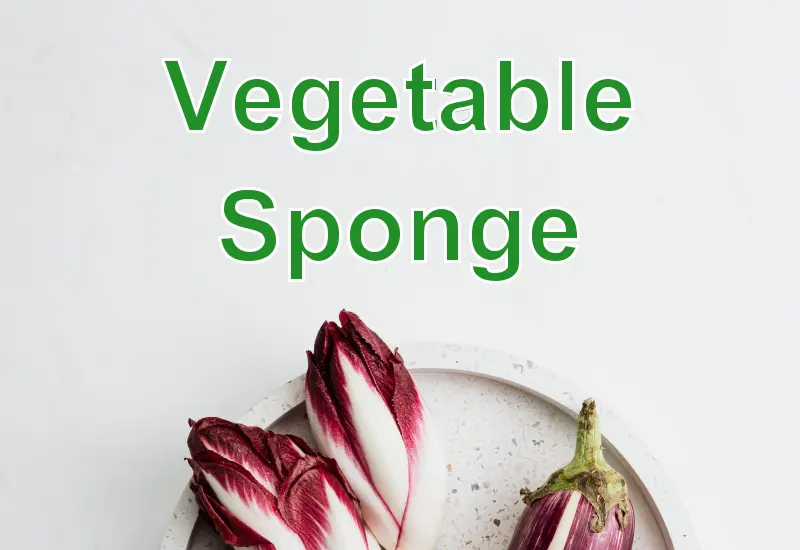Vegetable Sponge: Benefits And Uses That You Should Know

Contents
Ever since my friend Carli asked me where I could find loofahs (or the plant from which they are derived) I have not been able to get the idea of writing about it out of my head. For this reason, today I am going to tell you what is called a vegetable sponge, what its benefits are, the uses that you can give it, and why they have become the ecological alternative to conventional synthetic sponges.
Why Is It Important To Know The Benefits And Uses Of The Vegetable Sponge And Use It Instead Of The Synthetic Sponge?
Are We Talking About Plastics Again?
Nothing new can be said about the sponges that we normally use. There’s nothing good to be said for them as they are made from non-recyclable and non-compostable plastic. That is, once used and discarded, they end up being disposed of in landfills.
And that plastic sponge, when used constantly, deteriorates and turns into small pieces of plastic that end up in the rivers and seas. But wait this doesn’t end here, it gets worse. Fish that ingest these plastic microparticles, mistaking them for food, get sick. And who ends up eating those fish with thousands of microplastics inside? Humans.
People end up eating the same plastic microparticles that we make. ugh!
There is no solution for all the plastics that are manufactured, but we can do small actions from our homes that help slow down the wave a bit.
What Is A Vegetable Sponge?
The loofah is derived from a plant called luffa. This plant comes from India and is a climber similar to the pumpkin. When its fruits are harvested, by letting them dry, a filamentous skeleton is obtained, the vegetable sponge.
What Are The Benefits Of The Vegetable Sponge?
Natural sponges will mean a change when thinking about our skincare routine since they have skin exfoliating properties. In addition to this benefit, I will tell you some more below:
1) Vegetable Sponges Are Natural, Ecological, Biodegradable, And Compostable.
By this I mean that they are not made from any synthetic material, they come straight from the plant. Being natural, you can put them in your compost bin without problems. And this makes them super ecological since they contribute to the circular economy.
2) Help Reduce The Use Of Plastics.
By using vegetable sponges, you stop buying synthetic sponges in the market. And if you plant your luffa, you also save on packaging. You might think: well, it’s not so much plastic, but think about how many sponges you use in your life and, besides, almost everyone on the planet uses them to wash their utensils or when taking a bath, therefore, it’s a lot of plastic. that you save by using the ecological sponge.
3) If You Grow The Plant At Home, The Loofah Is Free. If You Don’t Have It, You Can Get It For A Very Low Price At Health Food Stores.
There are very few things in the world that beat the word free. What satisfaction it gives us when we get something without paying a penny. Well, imagine the joy of getting your loofah straight from your plant, every year and for FREE! It has no comparison.
4) Lasts Longer Than Synthetic Sponge.
This is because its natural fibers are more flexible and more resistant, so they last longer in your shower or kitchen. Try to rinse it and let it dry after you use it. If you feel that it has a bad smell, you should replace it.
5) If You Have The Plant, You Can Beautify Your House, Balcony, Or Patio With This Pretty Climber.
I don’t need to tell you anything about it when you can see in this photo how beautiful this garden has turned out with the luffa providing shade and freshness. A luxury!
6) You Can, From The Same Fruit, Obtain Multiple Sponges And Use Some For Cooking And Others When Bathing As A Skin Scrub.
The great thing about loofahs is that a single fruit splits many loofah sponges, just cut the fibers to the size you want. So they can be used both to wash dishes in your kitchen and to remove dead cells from your skin with a gentle exfoliation.
7) They Can Be Used Together With Shampoo And Solid Soaps To Reduce The Use Of Plastics In The Bathroom.
If you already use solid soaps and shampoos, this is the ideal complement to your sustainable and zero-waste bathroom.
How To Use The Ecological Sponge? What Is The Luffa Used For?
Here I leave you a video so you can appreciate how the ecological sponge behaves in contact with water and detergent.
I also leave you the link to an Instagram account, where you will be able to gossip a bit about luffas.
The Vegetable Sponge: The Ecological Alternative At Home
If you want to learn how to sow and grow luffa at home, where to get seeds, and how and when to harvest it, click on the article How to grow your loofah?. You will also find all the care that the plant needs, with super easy tips.
ABOUT ecoGnome
Leading a sustainable lifestyle means wholeheartedly embracing respect for the environment and making a positive impact for people and the planet.
Click to read on